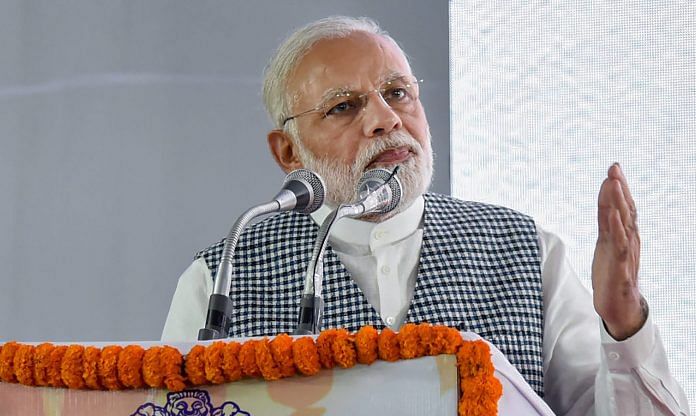Democracies become lame if citizens are denied openness, transparency and access to necessary information about the government they elect.
The Narendra Modi government Thursday decided to not present the Bill proposing amendments in the Right to Information (RTI) Act vis-à-vis tenure and salaries of information commissioners.
This was done after the Opposition raised concerns regarding the proposed amendments, with Congress chief Rahul Gandhi even saying that the “changes proposed to the RTI will make it a useless Act”. The government, however, should do more than just deferring the introduction of the Bill and instead assure the citizens and Parliament that the proposed amendments will neither lower the dignity of the office of chief information commissioner (CIC) and the information commissioners (ICs) nor dilute the rights of those who uphold the right to information.
Lame vs transparent democracy
The citizen’s right to information about the way they are being governed is as old as the Magna Carta, if not older. From being a special right that entitled criminals to know the charges against them, the right to information has come to be recognised as one of the pillars of democratic governance.
Democracies become lame if citizens are denied openness, transparency and access to necessary information about the working of the governments they elect.
Governance, decision-making and public administration are getting increasingly complicated and are no longer just an executive prerogative but a legislative obligation. Unless there is a harmonious relationship between government’s duties and citizens’ rights, state’s organs can slip into a regressive apparatus rather than remain instruments of service.
The right to information, therefore, is part and parcel of good governance.
Journey of RTI
Although the Constitution of India does not specifically mention the right to information, there are a number of Articles, drawing inspiration from the Preamble, that provide ample scope for interpretation. The Right to Freedom of Speech and Expression under Article 19(1)(a) is unique in itself but not absolute.
The 73rd and 74th amendments to the Constitution expanded the scope of right to information and governance primarily with a view to decentralise and focus on grassroots. Subsequent governments followed up the initiative and fine-tuned the concept to make the right to information effective but simple to operate.
The post-Emergency Janata government headed by Morarji Desai constituted a working group in 1977 with a mandate to study the Official Secrets Act, 1923 and suggest steps to make it more meaningful and ensure greater flow of information to the citizens. The working group suggested that the Act should not be amended.
V.P. Singh’s National Front government tried to provide legislative framework for right to information but did not succeed as the government fell in less than a year. The chairman of the Press Council of India Justice P.B. Sawant came out with a draft law in 1996. A year later, a working group under H.D. Shourie set up by the Department of Personnel made further recommendations, which finally resulted in the Freedom of Information Act 2002. The Right to Information Act finally came into effect on 12 October 2005 when the UPA-1 was in power.
Power to the people
The NDA government had given a notice of intention in Rajya Sabha to introduce the “The Right to Information (Amendment) Bill, 2018”. The Bill seeks to frame rules on salaries, allowances and other related services of CIC and ICs.
After the amendments, the salaries and the tenure of the officials will be “prescribed” by the central government. Currently, the tenure of the CIC and the ICs is five years.
The government’s argument is that there is no provision under the present RTI Act to regulate these issues. The CIC and the ICs enjoy facilities similar to that of the election commissioners. While the Election Commission is a constitutional body, the government says, the CIC and the office of state information commissions are statutory bodies.
The opposition to amendments in the RTI, however, seems to be fuelled by political considerations and should be avoided.
Since its implementation, the RTI has had mixed effects on governance, bureaucracy, and the exercise of rights by the citizens. The Act has been misused but that should not be held against its broader purpose. The Act has truly strengthened the hands of citizens, empowering them to increase participation in the democratic process and improving government’s functioning and transparency.
The author is former editor of ‘Organiser’ and Secretary General of Forum for Integrated National Security FINS.



